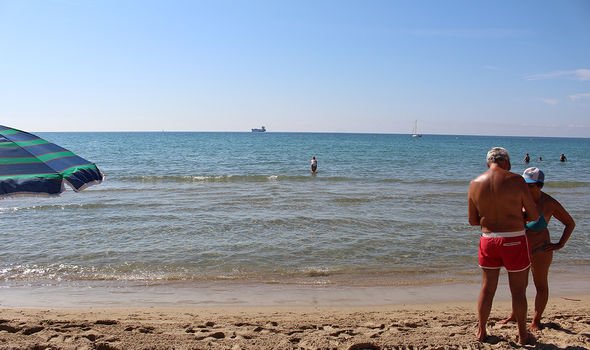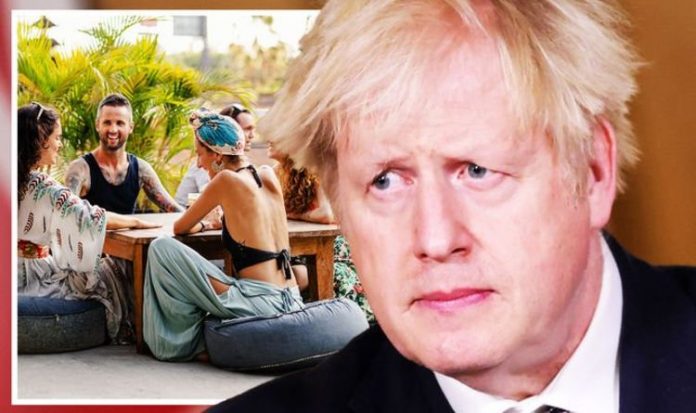Anti-Brexit activist claims no deal is bad news for British expats
Brexit trade talks are still dragging on, but time is ticking and the transition period will end on December 31 — meaning freedom of movement will come to a close as Britain leaves the bloc. Once this happens, Britons will be treated like any citizens from another “third country” within the EU. From January 1, Britons who want to stay in a European country for more than three months at a time will have to apply for a ‘long stay’ visa every 180 days.
In France, these visas can last between three months and one year, and cost €99 (£89), although this price may vary from country to country.
Applications are then submitted to the French embassy, and in-person interviews are often involved.
This is expected to impact around half a million Britons who own a home in one of the remaining EU states.
One expat, David Young, claimed: “Like me, many Brits divide their lives between two countries, but after Brexit – unless they apply for full residency in the EU country where they’ve bought their property, pay taxes there, and lose their NHS provision back home – second-home owners will be limited to stays of a maximum of 90 days.
“Citizens from the EU, EEA and Switzerland who want to stay in the UK for up to six months will not require a visa post-Brexit.

UK expats living in the EU were frustrated at the post-Brexit rules (Image: Getty/no 10 flickr)

Negotiations on future UK-EU partnership (Image: Express)
“All we are asking for is parity.”
Speaking to The Telegraph, Mr Young said he had set up a campaign group called 180 Days in Greece to push back against the latest rules.
This frustrated message was echoed from a range of different expats.
Speaking to MailOnline, Anthony Gasson who has a home in France, said: “All I am asking for is parity, and to have the same rules for us as EU citizens have in the UK.
“We bring money into the local economy all the time we are there so I don’t understand why we should be discouraged from spending our six months in any one year whenever we want to.”
Another expat told the MailOnline: “I have to choose between giving up being British or going where my life has taken me — legally and in accordance with our Government.”
READ MORE: EU granted permanent base inside UK as PM weakens in Brexit talks

There is a large expat community in many EU member states (Image: Getty)
The UK Government’s official guidance explained how it will work for expats in the EU.
It reads: “From January 1, 2021, you will be able to travel to other Schengen area countries for up to 90 days in any 180-day period without a visa for purposes such as tourism.
This is a rolling 180-day period.
“To stay for longer, to work or study or for business travel, you will need to meet the entry requirements set out by the country to which you are travelling.”
It explains that this could lead to applying for a visa or work permit.
However, it does state: “You may also need to get a visa if your visit would take you over the 90 days in 180 days limit.
DON’T MISS
Biden ‘may have been good for Brexit’ — until Johnson broke law [INSIGHT]
Biden boost: ‘Ireland on ballot’ in key swing state as US votes today [EXPLAINED]
Boris’s Brexit plot may have ‘put US-UK trade deal at risk’ [EXPOSED]

The stages that need to be reached before a Brexit trade deal can be secured (Image: Express)

A British community in Spain — fears over visas have erupted after recent Brexit talks (Image: Getty)
“Periods of stay authorised under a visa or permit will not count against the 90-day limit.
“Travel to the UK and Ireland will not change.”
EU citizens living in the UK have to apply to prove their status as part of the settlement scheme.
This allows EU citizens and their families who have resided in the UK to remain and keep the same rights they had beyond June 2021.
It has already received 4.2 million applications, of which 55 percent were granted settled status, for those who have been in the UK for more than five years, and 42 percent were granted pre-settled status, for those who have lived in Britain for less than five years.
It is not yet clear what will happen to those who want to live in the UK after the transition period.
Brit urges Dutch government to grant dual nationality to expats
Downing Street has claimed the Settlement Scheme is more generous than that offered to Britons by many EU member states.
Difficulties over visas are just one of several problems that expatriates in the EU face.
“Passporting” rules which permitted financial institutions to provide a service across the bloc will dissolve, meaning UK bank accounts are about to close across the EU.
UK lenders will then have to work on a country-by-country basis to continue offering banking services to their customers in the EU.
Nationwide is already in the process of closing at least 5,000 accounts to those expats living in the Netherlands and in Italy.
It has a total of 93,000 expat customers in the bloc, yet it remains undecided whether it will close the remaining accounts.
Barclays, too, has announced its plans to close an undisclosed number of accounts in Italy, Belgium, Slovakia and Estonia.
The Queen’s private bank, Coutts, is owned by NatWest and has said it will no longer serve any customers in mainland Europe.







